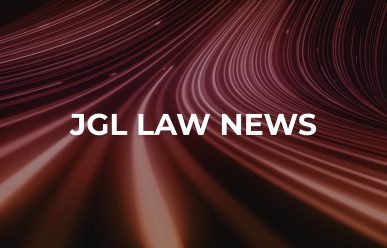(Pro Football, Inc. d/b/a/ The Washington Redskins)
DC’s professional football team, the Washington Redskins, has been in the news quite a bit as of late – and most of it has not been good. Earlier this summer, the U.S. Patent and Trademark Office issued a 2-1 ruling in Blackhorse v. Pro-Football, Inc. cancelling the team’s trademarks.
Check out our previous post on this subject: Hail to the ???: The Battle over the Washington Redskins’ Name Heads to Court. That decision has fueled enormous controversy as to whether the team name should be changed. Even now, in Green v. Pro Football. Inc.[1]a federal court has refrained from addressing the team by its official name, and instead refers to it as the “Washington team.”[2]
Now, the Redskins are embroiled in a very different type of litigation in the U.S. District Court in Maryland. At issue in Green v. Pro Football. Inc. is an alleged Redskins’ bounty program. Former New York Giants player, Barrett Green, has alleged that he was injured as a direct result of the Redskins’ bounty program run by former defensive coordinator, Gregg Williams. Bounty programs involve providing players with incentives, in this case financial incentives, to deliberately injure opposing players.[3]
A play-by-play on the facts of the case
Barrett Green played for the New York Giants from 2000-2004. In 2004, Green sustained a knee injury, which was listed on an injury report.[4] Shortly thereafter, the Redskins played against the Giants, and Green sustained a career ending injury when former Redskins player Robert Royal performed an illegal maneuver and “lowered his helmet and at full speed dove into Green’s knees.”[5]
Green maintains that though he initially suspected foul play, he relied on representations made by Royal and others that the incident was unintentional. In 2012, however, the Washington Post published an article on the alleged bounty program.[6] Subsequently, the NFL launched its own investigation, and confirmed that while with the New Orleans Saints, Williams had administered a bounty program.[7]
With this new information, Green filed suit in Prince George’s County against the Redskins and Royal for state law torts he suffered as a result of the bounty program. The suit has since been removed to the U.S. District Court for the District of Maryland. Recently, the defendants filed Motions to Dismiss, or in the Alternative, for Summary Judgment.
The Court Ruled that the Counts Associated with the Alleged Bounty Program Can Proceed to Trial
In support of their arguments to have the case dismissed, the defendants argued that (1) the claims were barred under the statute of limitations, and (2) a Collective Bargaining Agreement (“CBA”) preempted state law claims pursuant to the Labor Management Relations Act, 29 U.S.C. § 185(a).
In Maryland, generally the statute of limitations bars a claim if it is not brought within three years of the occurrence. The discovery rule, however, is an exception and the statute begins to run once an individual gains knowledge or discovers the basis for a claim. Another exception relates to the fraudulent concealment doctrine.
The Court stated that Green’s claims fell into two categories: those associated with the bounty program and those that were independent of the bounty program. The Court dismissed the claims which were not linked to the bounty program since they were clearly barred by the statute of limitations, and did not meet a qualifying exception. In other words, he should have brought them back when he knew about them and within the three year period to bring a claim in Maryland.
However, the Court ruled that the statute of limitations did not bar Green’s bounty program claims since he did not discover the existence of the alleged bounty program until 2012. Since he could not have filed suit for something he could not have discovered back then, the Court will allow the bounty program claims to remain though they were filed after Maryland’s three-year filing period. The Court was satisfied that Green alleged facts sufficient for a jury to make a determination as to whether or not the defendants fraudulently concealed a bounty program. For example, in 2004, Royal participated in a press conference and stated that the hit was not intentional. In his pleadings, Green alleges this and other misrepresentations prevented Green from learning of the existence of the bounty program until 2012.
Most league disputes do not make it into the courts since their CBA requires arbitration. The team argued that this case is no different. However, the Court rejected the defendant’s argument of preemption by a CBA since the case involves claims of intentional torts and not issues that are traditionally covered by a CBA such as labor disputes. “Suggesting that the intended target of the mayhem could in any way be bound by a CBA to yield his right to seek legal redress in the face of such deliberate aggression is not only inadmissible; it is ludicrous.”[8] Lastly, the Court granted Green’s request to amend his complaint to add a claim for civil conspiracy.
As a result of this ruling, the Redskins must now prepare to go to trial in federal court over this issue of the bounty program. There will certainly be more to come.
* * *
[1]Green v. Pro Football, Inc., CIV. PJM 13-1961, 2014 WL 3385927 (D. Md. July 8, 2014).
[2] Green at 1.
[3] Id. at 1.
[4] Id. at 2.
[5] Id.
[6] Mark Maske, Washington Redskins Offered Bounties for Big Hits Under Former Assistant Coach Gregg Williams, Washington Post (Mar. 2, 2012), http://www.washingtonpost.com/sports/redskins/washington-redskins-offered-bounties-for-big-hits-under-former-assistant-coach-gregg-williams/2012/03/02/gIQAH0RlnR_story.html
[7] Mark Maske, NFL Bounty Penalties: Sean Payton, Gregg Williams, Mickey Loomis Suspended, Washington Post (Mar.. 3, 2012), http://www.washingtonpost.com/blogs/football-insider/post/nfl-bounty-penalties-sean-payton-gregg-williams-mickey-loomis-suspended/2012/03/21/gIQAJHd0RS_blog.html
[8] Id. at 20.



